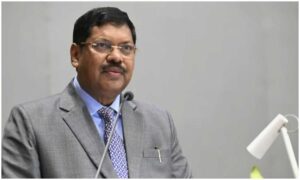Southern Waqf boards review UMEED portal rollout in Bengaluru

New Delhi: In Bengaluru, the Ministry of Minority Affairs hosted a zonal review with Waqf Boards from Karnataka, Tamil Nadu, Andhra Pradesh, and Telangana. The agenda centered on the UMEED portal—the Unified Waqf Management, Empowerment, Efficiency, and Development platform—and the progress since June 2025.
Boards must upload complete Waqf property details within six months of the launch. Representatives confirmed that uploads have started. Moreover, they agreed to accelerate entries by dedicating staff, standardizing formats, and resolving legacy discrepancies quickly.
The meeting tackled three priorities: efficient management, transparency in ownership, and steady progress tracking. Participants requested a multilingual interface. Officials welcomed the request and confirmed that regional language support will be added in phases to ease adoption across districts.
UMEED portal to standardize data and strengthen state-centre coordination
To improve usability, officials will refine navigation, forms, and validation. Additionally, they will publish guidance for bulk uploads and reconcile historic records with new identifiers. Therefore, boards can reduce duplicate entries and improve audit trails.
Karnataka shared updates on local Waqf Board activities. Meanwhile, other southern states described their mapping and verification status. The Ministry urged teams to pair uploads with on-ground checks so that digital records mirror the physical state of properties.
The initiative operates under the UMEED Act, 2025, in force since April. The Act advances modern Waqf administration and aims to unlock the developmental potential of Waqf properties for minority communities. Consequently, the UMEED portal becomes the hub for consistent property identity, location, ownership, and utilization data.
Standardization will help boards protect assets, resolve disputes, and plan community projects. Furthermore, unified dashboards will spotlight lagging districts and flag missing fields for correction. As a result, administrators can allocate resources more effectively and report progress with evidence.
The review closed with clear targets: monthly upload quotas, training schedules, and multilingual timelines. In sum, the Bengaluru meeting reinforced a shared objective—turn better data into better outcomes for communities.



